On the final day of the Tokyo Conference, March 1, keynote speeches on the theme of how democracies around the world can protect the liberal order were given by three highly experienced former politicians: former German President Christian Wulff, former Foreign Minister of Indonesia Hassan Wirajuda, and former French Foreign Minister Hubert Védrine.
Harmony within, peace without
- the people need the will to rule...and to respect other countries.
Christian Wulff
10th President of the Federal Republic of Germany
10th President of the Federal Republic of Germany
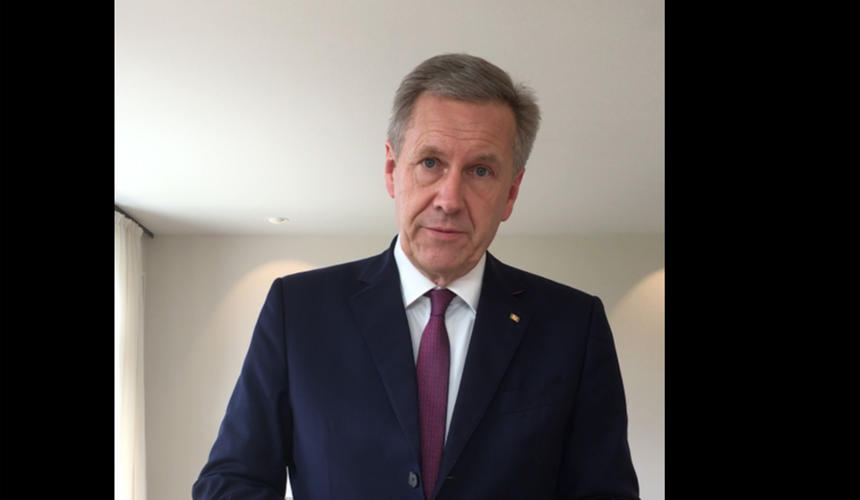
Former German President Christian Wulff provided the first keynote speech by means of a hastily arranged pre-recorded video, and he began by expressing his delight at having the opportunity to exchange opinions with the attendees of the Tokyo Conference regarding the important issue of strengthening democratic cooperation. He laid out six points on the subject.
"First, the future is open and we must all understand this," he declared, adding that "While the future cannot be predicted...history has proven that the more stable and participatory states become, the more conditions improve."
"Conditions are always changing, so democracy must remain dynamic," he continued. "Each generation must work to renew and refresh democracy."
Second, Wulff argued that excellent solutions are needed to respond to major changes. Wulff presented the example of Martin Luther's use of the printing press, which had an immense effect on the Christian world, even reducing the role that priests played. Today, Wulff argues, the same sort of changes are happening. With greater digitalization, people are now able to directly participate in public debate, just as people during Luther's time were able to read the Bible for themselves without relying on Church officials, and this has resulted in the media losing some of its former influence.
It was initially thought that digitalization would bring about truly participatory democracy, but Wulff warned that the medium is being abused.
"There are people who will utilize the medium for their own personal interest, to manipulate information," he said, pointing to the election campaigns of Donald Trump and Jair Bolsonaro of Brazil as examples, and to the national referendum in the United Kingdom on Brexit.
For his third point, Wulff emphasized that the people have to have the will to rule, and that the only way to prevent the emergence of authoritarianism is to be motivated to confront the problem. His example here was the rise of the Nazi Party in 1920s Germany.
"Now is the time to defend liberal democracy," he stated. "Democracy will not alert us when it disappears...we should harness all of the most advanced communication methods to counter authoritarianism."
Wulff's fourth point is that "essential memories" must be kept fresh, and reminded those listening about the importance of remembering the lessons of history.
"Our generation has fortunately not had to go through that kind of experience," said Wulff, who is 60 years old. "But people now, especially the younger generation, have forgotten how bloody that path to peace was."
Wulff returned to the events of 1933, when the Nazis rose to power in Germany, and he described the German people at the time as being "indifferent" to democracy, as having "given up". The signs of the coming catastrophe were already visible, Wulff said, and within three years democracy had been abolished, and the Jews were being prosecuted.
"And it was only through the catastrophe in Europe were we able to work together to bring about peace and stability."
Wulff moved on to his fifth point, which was that, "Patriotism is good for all countries, but nationalism causes catastrophe."
He explained that people turn to populism because they are drawn to simple solutions to the dramatic changes they see happening in the world.
"People start to look for a place where they belong, and the key to that is identity and homeland," Wulff said. "Being a patriot and being passionate about one's homeland is fine, but there must be a clear demarcation between benign patriotism and dangerous nationalism. Patriotism must be based on empathy and sympathy. Domestically, there must be ample space to accept diverse identities. To the outside world, there must be a peaceful attitude towards the other people of the world who are also patriotic about their own nations."
Globalization and digitalization are making the world increasingly diverse, and Wulff feels that it is important to put more effort into understanding each other's societies, while at the same time, ensuring that we all follow the rules of society, without exception.
Wulff's sixth point was that people must understand the indispensability of cooperation. He feels that what is most lacking today is the desire to nurture a common outlook, and that more effort needs to be put into respecting each other and working to achieve equality. Wulff also stated that unilateralism must be opposed at all cost, and suggested that media outlets that advocate for the spread of multilateralism could be given public support.
Wulff stressed that the lessons of 1918 and 1945 must not be forgotten, and said, "What is important is to avoid closed-door diplomacy and to strengthen the United Nations, NATO, and other organizations. After all, no matter how strong a country seems, no single country can solve all the problems of humankind."
"In order to grow the global economy, there must be a common effort to expand free trade," he added. "And to overcome the crisis surrounding debt sustainability, ethical and proper economic and monetary policies are needed, which will require the strengthening of the WTO, the World Bank, and other international organizations."
Remaining problems include how to engage China, an authoritarian capitalist country competing with the United States to achieve hegemony, and how to create partnerships with Africa, i.e. how to come up with a framework that benefits all stakeholders.
Wulff concluded his keynote address with an anecdote about the city of Lübeck, once the leading city of the Hanseatic League, a confederation of German guilds and towns during the Middle Ages. Marking the entrance to the old city is a gate called the Holstentor, on which are inscribed the words, "Concordia Domi Foris Pax" or "Harmony within, Peace Without."
Wulff feels that this statement is still a valid one to follow for us in the 21st century.
"To bolster the slow process of community building in East Asia...could strengthen the regional order, and eventually, the global liberal order."
Hassan Wirajuda
Former Foreign Minister of Indonesia
Former Foreign Minister of Indonesia
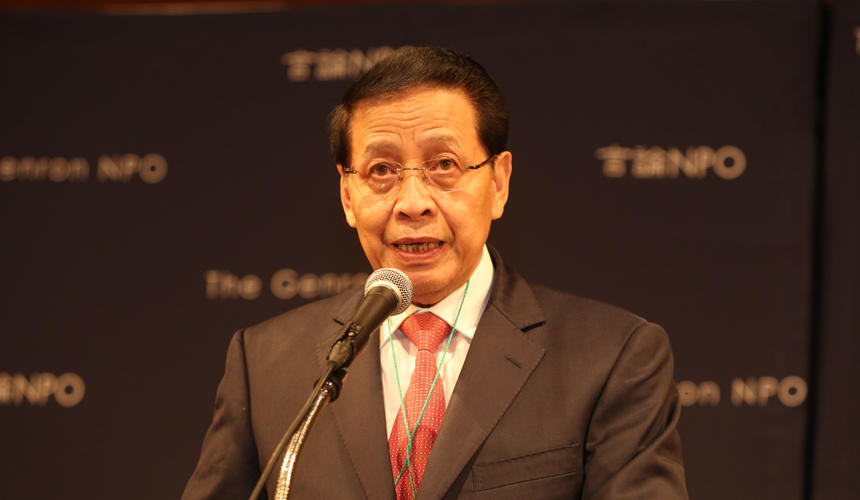
The next keynote speaker to take the podium was Hassan Wirajuda, former Foreign Minister of Indonesia. Wirajuda opened his speech by linking the current world situation to the election of Donald Trump as President of the United States.
"Since Donald Trump came to power and imported the slogan 'America First', our world has been becoming more disarrayed," Wirajuda said. "So, what we need is more than just updating or repairing the existing global order, but rather major reform...a more fundamental restructuring."
Wirajuda argued that before discussing how to change the world order, it is necessary to consider the fundamental principles on which the world order is built, and that promotion of international cooperation must be based on the United Nations Charter, which outlaws war "except in self-defense." This stands in contrast to how the League of Nations was governed, as it allowed for "just wars." Wirajuda admitted that implementation of the United Nations Charter is not always perfect, however.
"In practice, relations among permanent Security Council members contradict these principles," he said. "During the Cold War, which lasted for 41 years, the lack of cooperation among the great powers rendered the Security Council ineffective."
Since then the situation has not changed dramatically, he believes.
"The lack of consultation and, in fact, strong disagreements among major powers is key to the UN Security Council failure to carry out its mission for the maintenance of international peace and security," he said.
Wirajuda expressed some unease about China's rise in strength both economically and militarily.
"There is an uncomfortable comparison between the rise of China and the rise of Germany which preceded World War I," he said. "President Trump sees China as a strategic competitor, no longer as a partner as viewed by earlier administrations."
This change in stance has made the relationship between the United States and China more complicated, he feels. Wirajuda next talked about democracy in the world and the current liberal order.
"New democracies are being threatened by creeping authoritarianism," he said. "Sadly, we cannot expect much from both established and new democracies to uphold the global liberal order. All democracies - advanced as well as young and emerging democracies - are facing great challenges to prove to their own people that democracy works in terms of creating prosperity, peace and security, as well as social justice."
"Successive attempts to reform the existing world order's political, security and economic structure have failed because reform inevitably means a redistribution of power, and the privileged tend to resist change that leads to the redistribution of the powers they have acquired."
Wirajuda noted that implementing change in the international order will also be difficult.
"China has a rightful place in a new world order, comparable to its new status as a global superpower. Psychologically, of course, this is not easy to accept for the old superpowers."
Finally, Wirajuda presented a proposal on how Asian democracies can collaborate.
"To bolster the slow process of community building in East Asia, we might consider five democratic countries, all members of the G20, namely: India, the largest democracy; Indonesia, the third largest; Japan, an advanced democracy; South Korea and Australia. We could call this process of establishing an emerging democracy 'democratic convergence.' This could strengthen the regional order, and eventually, the global liberal order."
Forming a posture of reciprocity towards China, and persuasion towards the United State
Hubert Védrine
Former French Foreign Minister
Former French Foreign Minister
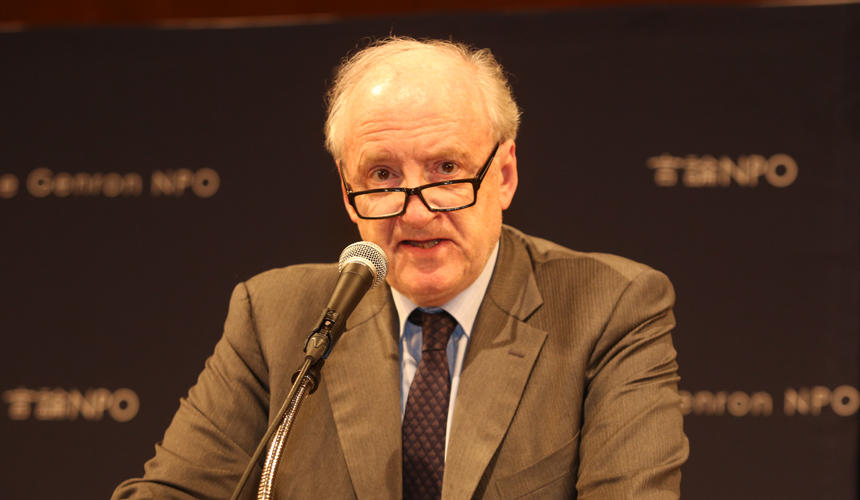
Last to take the podium was Hubert Védrine, former Foreign Minister of France, who opened his speech by stating that the democracies of the world are facing a major challenge before adding that, "In Europe, I don't think enough attention is being paid to the insights born in Japan. This conference has an interesting position that is important, and we need to share what we have considered."
His introductory statement complete, Védrine moved on to the first goal of keynote address: providing a diagnosis of the situation faced by the world. Védrine believes that the instability seen in multilateralism today will be a long-term issue, and that multilateralism shouldn't be too idealized.
"International relations over the past ten years have not been based solely on multilateralism," he said. "Although Japan and Germany have been putting in a particular effort to emphasize multilateral rather than unilateral approaches. It is the same in France and Great Britain, and it was the same in the United States before President Trump."
Most importantly, even if Trump loses the upcoming election and doesn't serve as US President for an additional four years, Védrine predicted that Trump's behavioral pattern will continue to have a powerful influence on politics. Védrine provided another diagnosis regarding the defense of the liberal order by democracies.
"This may not be as visible in Japan, but in European countries, as well as the United States and Canada, the working class no longer believes in globalization...doesn't believe it is good for them. They have suffered - have felt that they have lost something - and that has led to a more populist reaction."
In another diagnosis, Védrine pointed out that some believe that the sudden rise of globalization was too abrupt, and the effects it has had on society were extremely harsh. This sudden globalization has caused financial markets to have a greater influence on the global economy, and the gap between the rich and the poor is becoming increasingly large.
"This is not simply an issue in authoritarian regimes," he said. "It is a problem of the international liberal order."
"So what can we do?" he asked, his diagnosis of the issue complete.
"The liberal order is full of imperfections, full of problems, but at the same time, it is superior to what we had before," he said. "What can we do? There are no magic solutions, but I have a simple suggestion. We should investigate what we can accomplish without the United States. Without Trump."
One example in which countries could work together would be in climate change, which Védrine called, "The problem in the coming years for all countries."
Védrine stated that it will be important to move forward on the issue even without the participation of the major powers, pointing out that collaboration is possible with other like-minded governments, but also with various actors within the United States, including state governments, corporations and researchers. He also noted that if, for example, Americans were to come up with an innovative battery solution for storing solar energy, that could even convince Trump, who has turned his back on international cooperation in the fight against climate change, to change his mind.
He did warn that some tension with the United States can be expected if other democracies come together under the liberal order, but that the potential for confrontations with Trump should not stop countries from working together.
One example would be the nuclear deal framework with Iran, from which the Trump administration decided to withdraw. Védrine described the problem as lying in President Trump's attempts to prevent other countries from abiding by the agreement by applying sanctions, a tactic that Védrine said has been used by the United States for decades. Under the dollar-based global financial regime, such measures have an enormous impact, and Védrine thinks that countries should "work together to persuade the United States to act more rationally."
Regarding the conflict between the United States and China, while Védrine believes there are areas in which compromise is possible, he finds it difficult to imagine how a long-term compromise can be reached when both countries have hegemonic ambitions. For Europe, Japan, and other similar countries, an effective strategy would be one that takes advantage of any compromises and tension between the United States and China.
Védrine pointed to French President Emmanuel Macron and his called for "reciprocity" in dealing with China.
"It is not about giving China special treatment," he explained, and said that China could be given a position and responsibilities in international society more commensurate with its rapid modernization."
"If we want China to go back to a more balanced position, then in the areas of economy, technology, strategy and environmental protection, we have to think about how to involve Europe, Canada, Japan and other countries, including emerging countries. That is the big challenge."
In conclusion, Védrine pointed out that while declarations in favor of multilateralism and the liberal order - like the Joint Statement formulated at The Tokyo Conference 2020 - are essential and very useful, but they are insufficient.
"What is needed are results," he said. "That is what is public opinion around the world is demanding."
The presence of leaders like Presidents Trump and Xi have created challenges that other countries must face.
"This challenge is not only external; it is domestic as well," Védrine said as he brought his speech to a close. "We need to recover the support of the people, and tell them that democracy is morally and ethically the best system. We must build a consensus among the people...and the consensus must include emerging countries as well."
After the three keynote speakers were finished, the panel discussion on the topics they presented began.
Read more:
- Formulating an exit strategy for the US-China conflict and launching a new era in US-China co-existence
- The significance of the U.S. presidential elections and determining the form of a new international order
- Panel discussion: Panelists exchange views on how to defend liberal global order
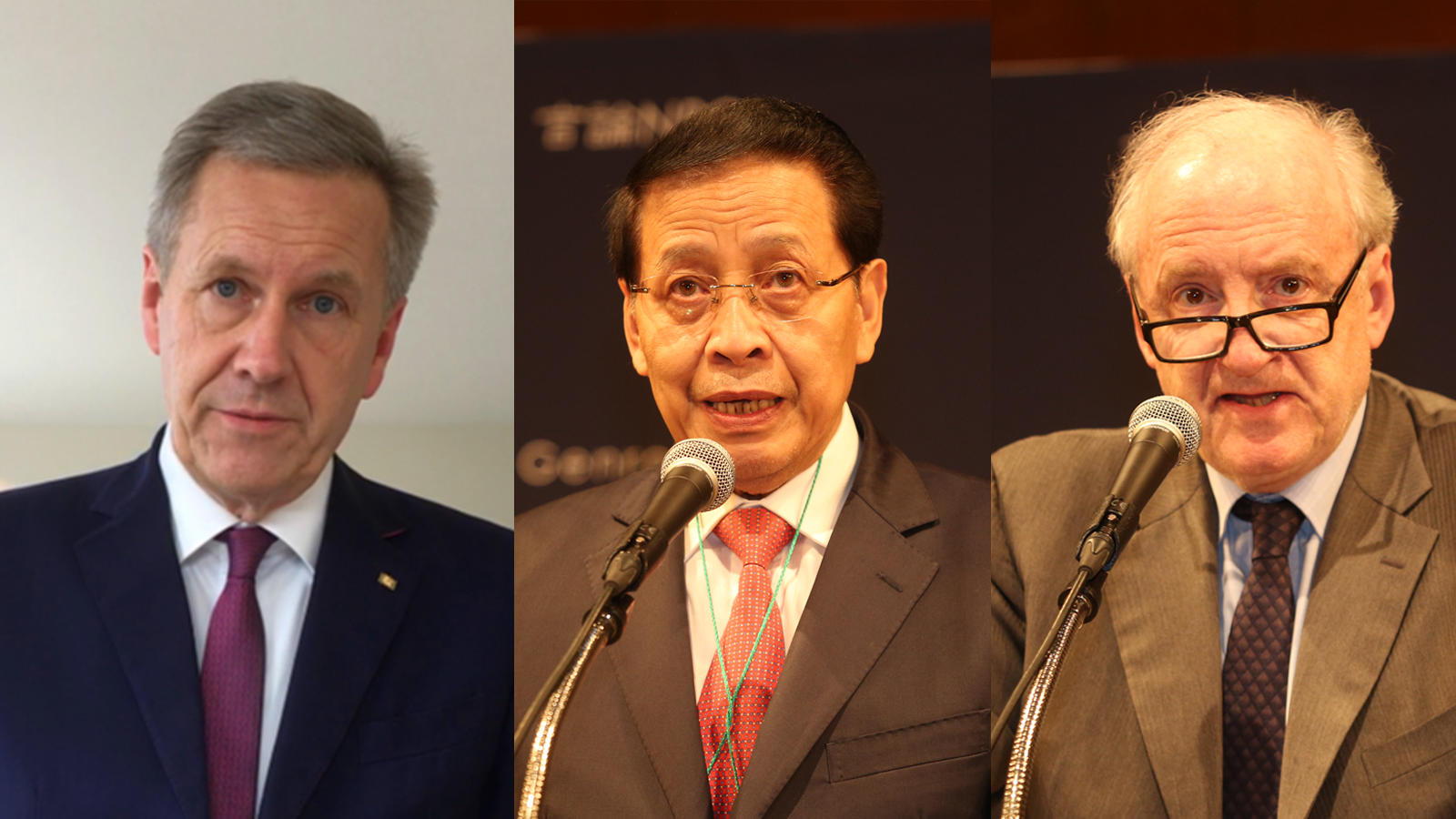
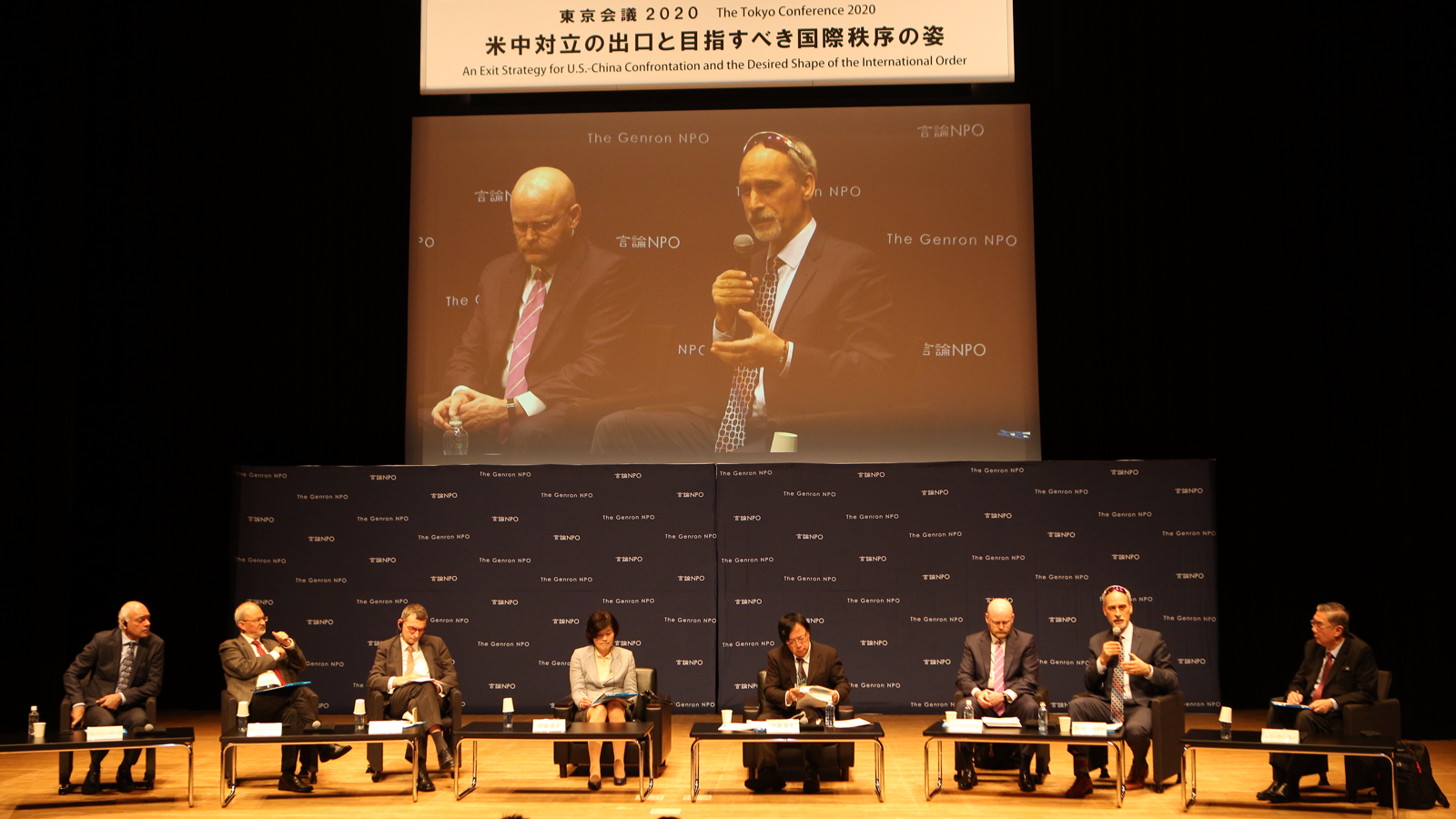
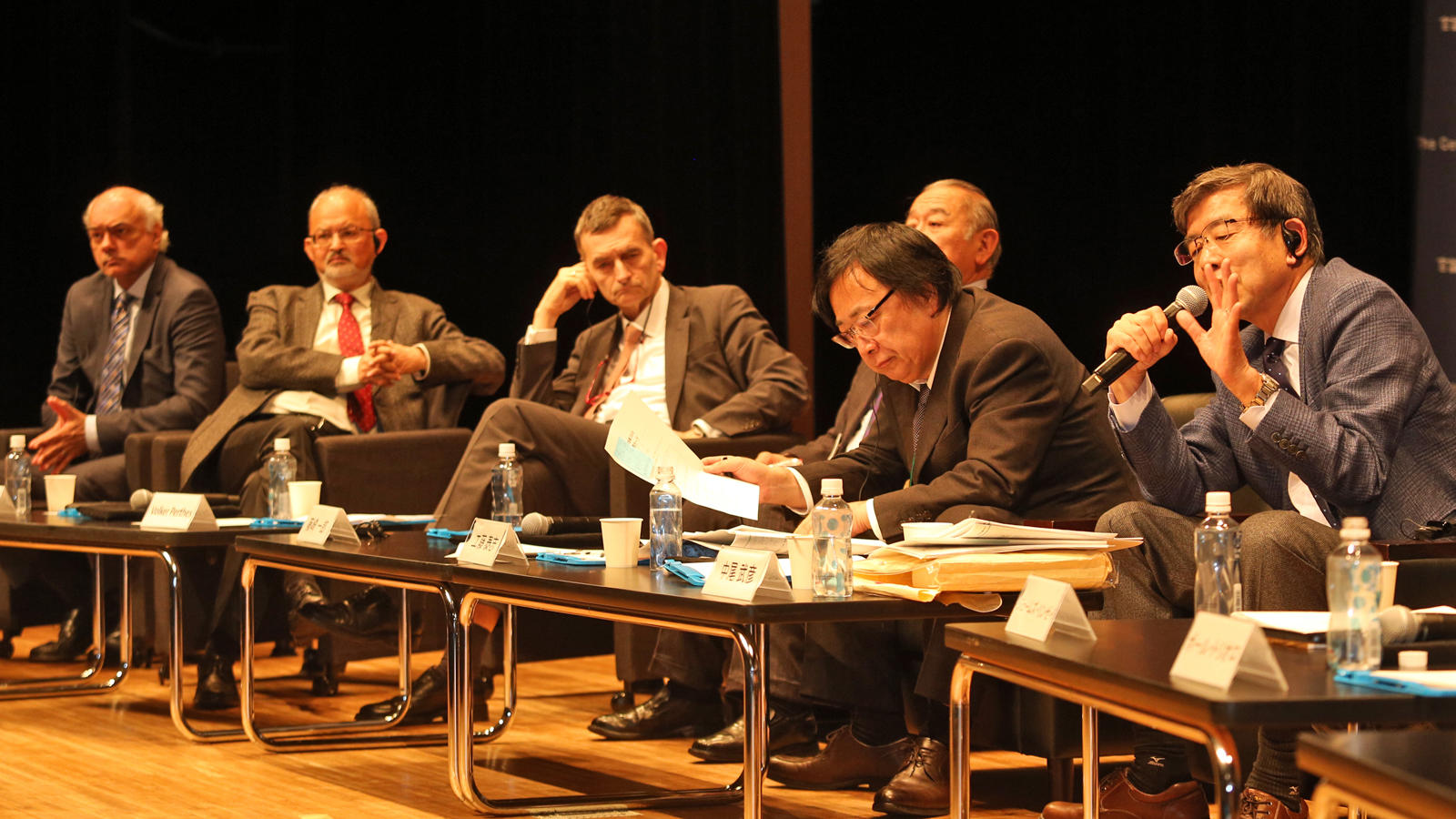
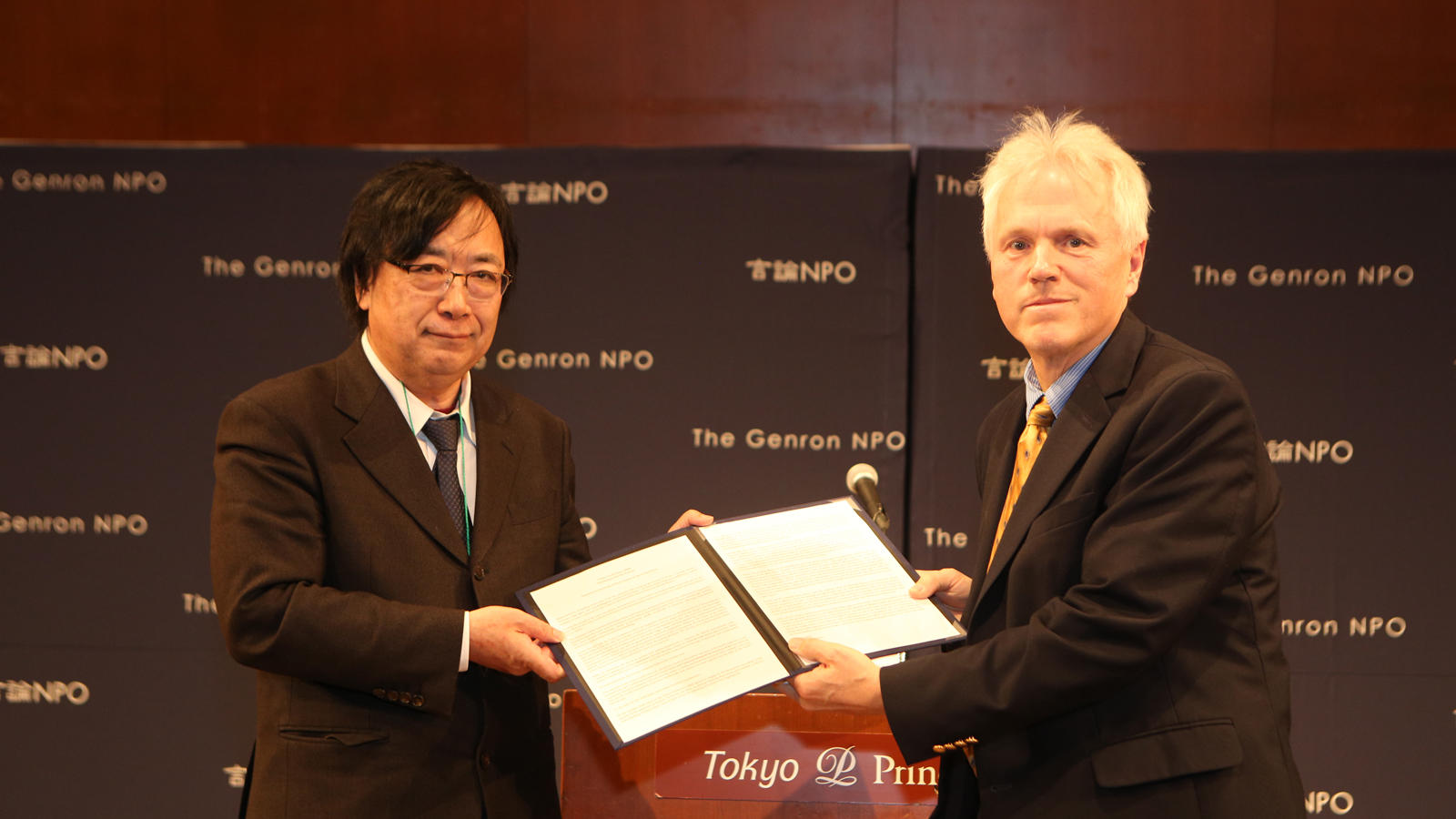
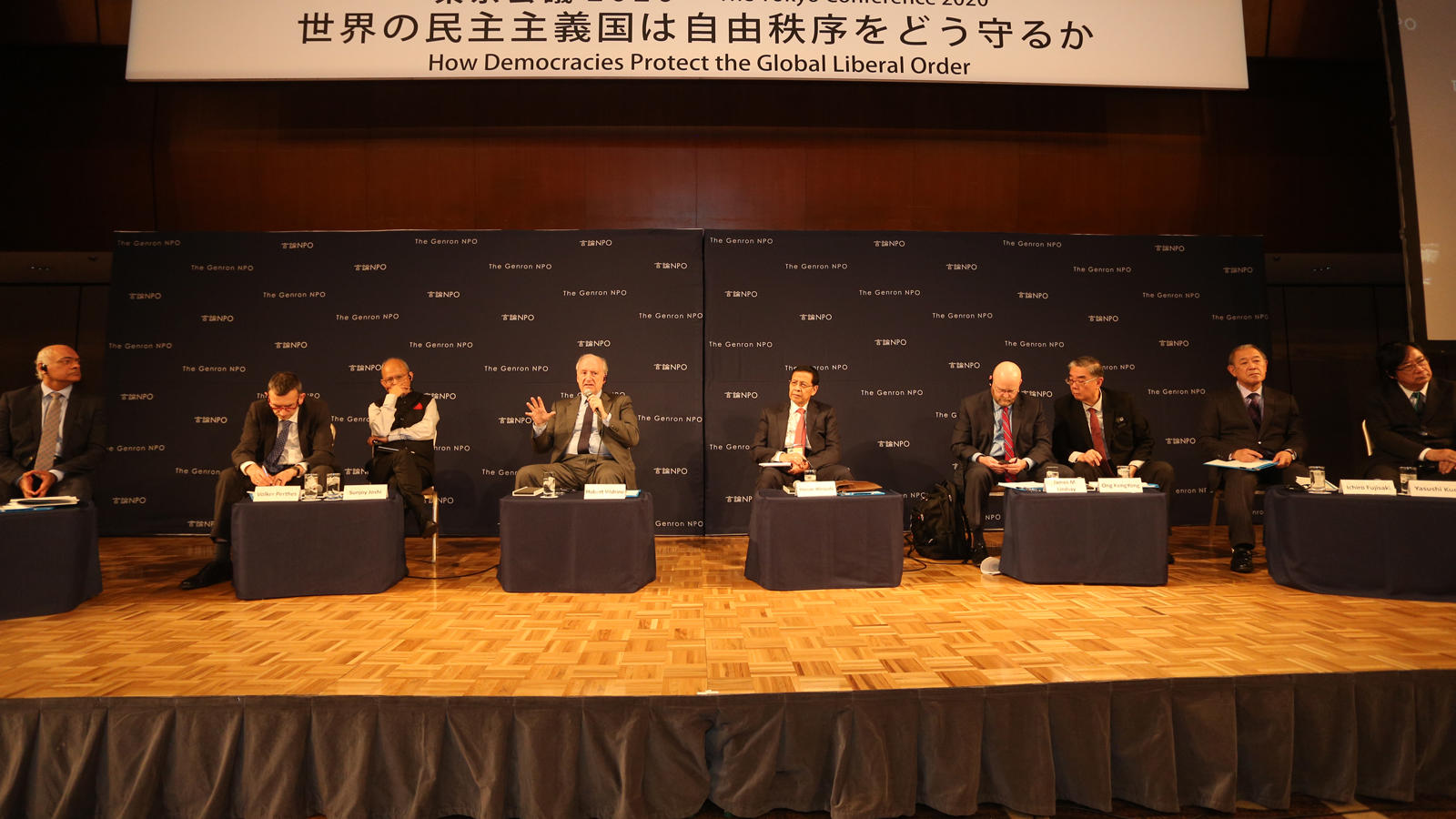
Post a comment